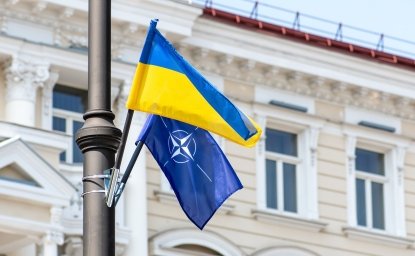The Israeli strike on the Hodeidah port was the second strike on the port in as many months. The Israelis intended to degrade the Houthi ability to import Iranian weapons. Most of these imports were taking place through the Hodeidah port. The target was specifically the oil refineries, which would then ultimately degrade the Houthi ability to operate its own missiles, its own munitions, and ultimately send a signal to the Houthi movement that Israel was able to strike Yemeni territory, even though it's separated by many hundreds and thousands of kilometers, into their territory.
Sending a clear message to the Houthi movement, a message of deterrence, and one that was a message to the Houthi movement to stay out of the conflict rather than risk further escalation in the Red Sea region.
Iran's vision for the Middle East, one that has been built over the past ten plus years, has been funding marginalized groups all across the Middle East. Funding these militant organizations. And that includes Hamas, Hezbollah, the Houthis, Shia groups in Iraq, giving them weapons, giving them political support and giving them the cover of Iranian military power in order to destabilize their own internal countries, their own internal political systems, and ultimately form a larger organization of Iranian allies across the Middle East.
The Houthis have fallen into the same camp as well. Over the past ten years, the amount of Iranian weapons, funding, political support for the Houthis by Iran has increased exponentially, destabilizing southern Arabia. Something that we've seen to a much larger degree since October 7th.
The other commonality between the Iranian allied militia groups across the Middle East is the fact that they've taken the entire populations of their countries or territories essentially under siege and held them captive.
Something similar has happened in Lebanese politics with the domination and dominance of Hezbollah for many years. And something similar has happened over the past ten years in Yemen, where the Houthi dominance of Yemeni politics and the very fact that the civil war, a very costly, a very humanitarian crisis, civil war has emerged in Yemen at the cost of the Yemeni people.
The Houthi goal and the Houthi war with Israel now is a great tragedy for the Yemeni people themselves who are in the midst of a very serious economic, health, humanitarian crisis. And yet, the Houthis focus on this self-destructive ideology focusing on an external enemy while their Yemeni people are held captive by this Houthi movement--a racist movement, an extremist movement, and one that is holding 20 plus million Yemenis captive under very difficult circumstances.
And in fact, probably the best thing that can happen for Yemen, is the downfall of this Houthi movement. There is an internationally recognized government, one that is a republic, one that is supported by Saudi Arabia and the United Arab Emirates. And presumably the best thing that could happen for the Yemeni people, is a return to stability.
The end of the civil war and the end of this Houthi movement.










